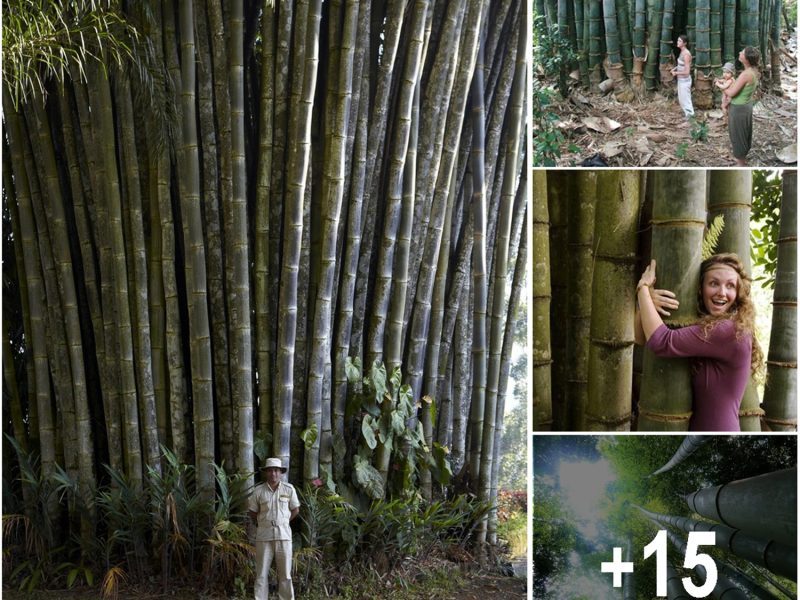Nature is full of wonders that can either be explained or not. However, they still leave anyone lucky enough to witness them in awe. Here are 8 fascinating natural phenomena from around the world.
- Sun Pillar
Location: Anywhere with the appropriate conditions
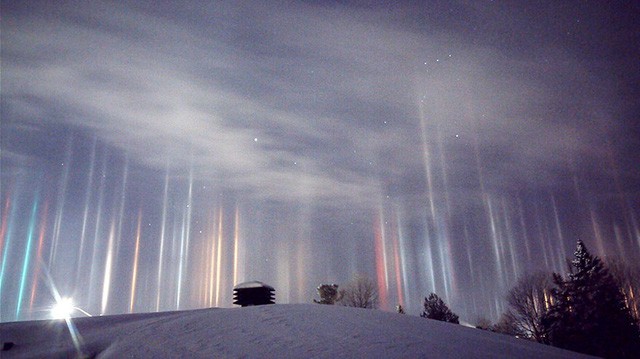
A sun pillar is an atmospheric optical phenomenon. It appears as a vertical shaft of light caused by the reflection of natural or artificial light off ice crystals floating relatively close to the Earth’s surface.
- Asperitas Clouds
Location: Anywhere with the appropriate conditions
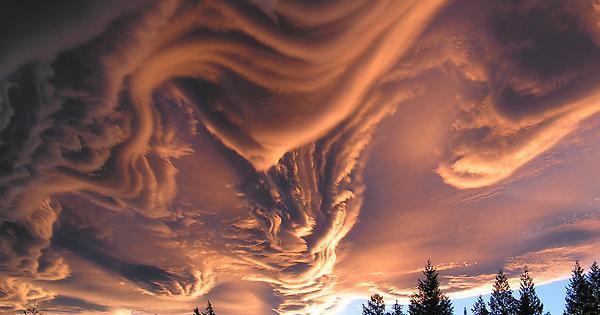
Asperitas clouds are dark and ominous clouds that resemble a storm. However, they often dissipate without producing any storms.
- Red Rainbow
Location: Anywhere with the appropriate conditions
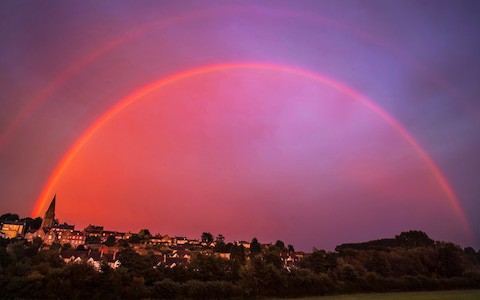
A red rainbow is an optical and meteorological phenomenon. Like a regular rainbow, it is caused by the refraction of light in water droplets, but the sun must be very close to the horizon. Because this phenomenon occurs in low light conditions, the effect of the rainbow becomes extremely impressive.
- Polar Stratospheric Clouds
Location: High latitude regions like Iceland, Scandinavian countries, Alaska, Northern Canada, and the South Pole.
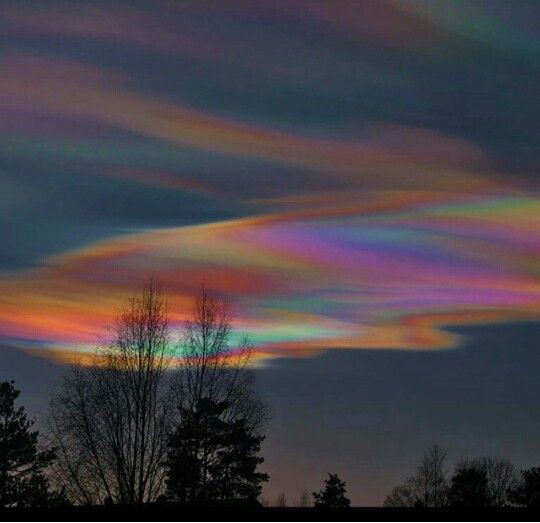
Also known as nacreous clouds, these beautiful clouds have an iridescent blue color and form at high latitudes. Unlike other clouds, they form in the stratosphere at very cold temperatures and receive sunlight from below the horizon.
Due to chemical reactions, these beautiful clouds are also the cause of ozone depletion.
- Volcanic Lightning
Location: Erupting volcanoes
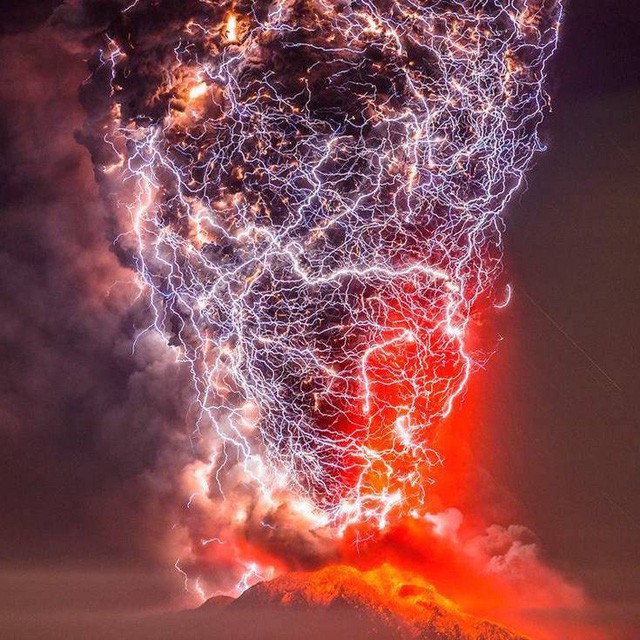
Volcanic lightning (or dirty thunderstorm) is a weather phenomenon that occurs when volcanic ash, rock fragments, and ice collide and create enough static electricity to produce lightning.
- Mammatus Clouds
Location: Anywhere with the appropriate conditions, but mostly seen in the United States
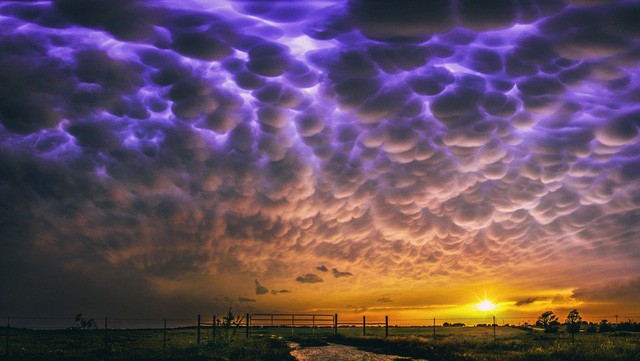
Mammatus clouds have a structure that looks like they are hanging under a thunderstorm. They are caused by cold, heavy, and saturated air that sinks and forms pockets.
- Methane Bubbles in Ice
Location: Abraham Lake, Alberta, Canada
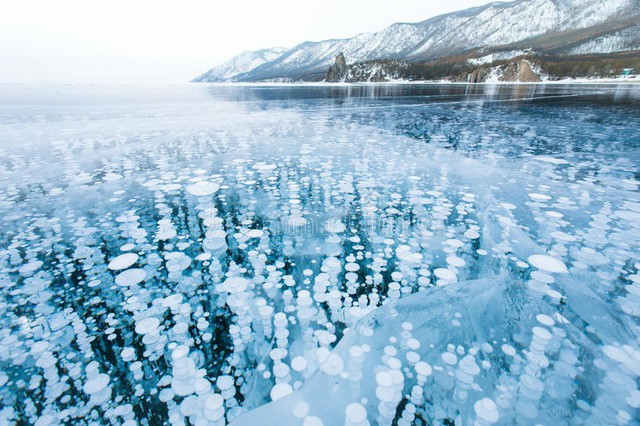
Methane bubbles are formed by decomposing organic matter trapped beneath the surface of a lake during the freezing winter. In the summer, these bubbles rise to the surface and burst.
- Aurora
Location: Over the magnetic poles of the northern and southern hemispheres. The aurora, also known as the Northern Lights, Aurora Borealis, Southern Lights, and Aurora Australis, is a natural display of dancing lights caused by collisions between electrically charged particles from the sun that enter the earth’s atmosphere and collide with gases such as oxygen and nitrogen.
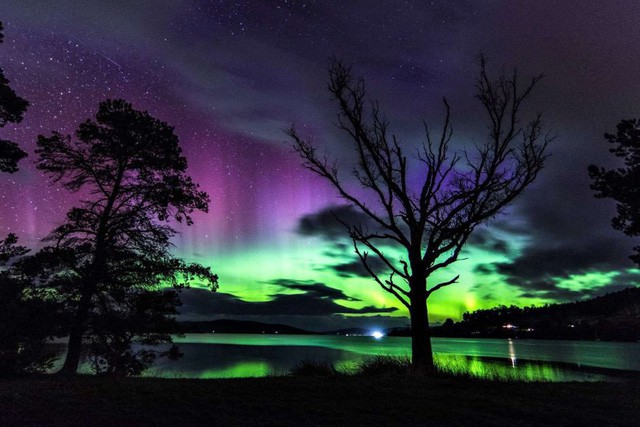
- Lenticular Clouds
Location: Anywhere under suitable conditions. Lenticular clouds are clouds with an unusual shape, often appearing as a disk or lens. They are often formed when moist air flows over mountains or other structures causing obstructions in cold temperature conditions. Due to their disk-like shape, they have been mistaken for UFOs.
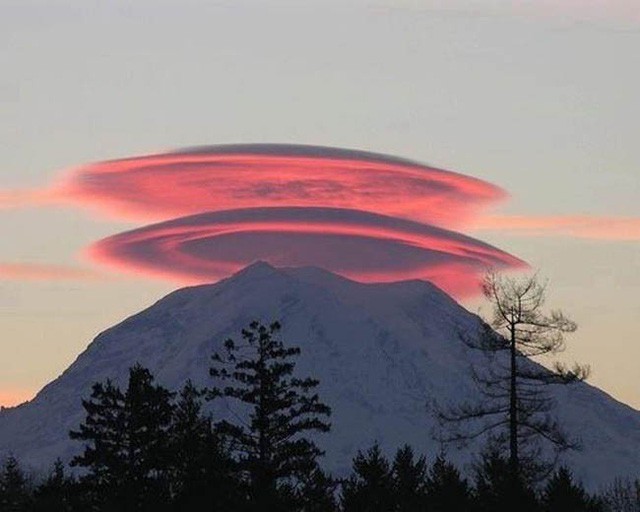
- Catatumbo Lightning
Location: Lake Maracaibo, Venezuela.
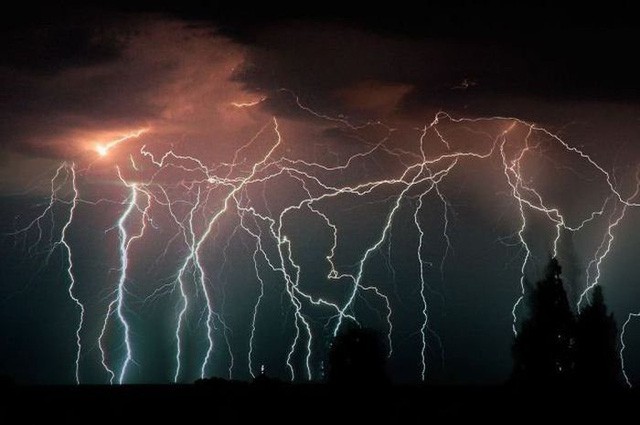
Catatumbo Lightning is an atmospheric phenomenon caused by a unique combination of wind, warm and moist climate, and surrounding mountains on three sides creating an electrical charge that leads to almost continuous lightning. This phenomenon occurs 260 nights a year, 10 hours per day, and around 280 times per hour.
- Supercell Thunderstorm
Location: Anywhere under suitable conditions, but commonly found in Tornado Alley in the United States and the Tornado Corridor in Argentina, Uruguay, and southern Brazil.
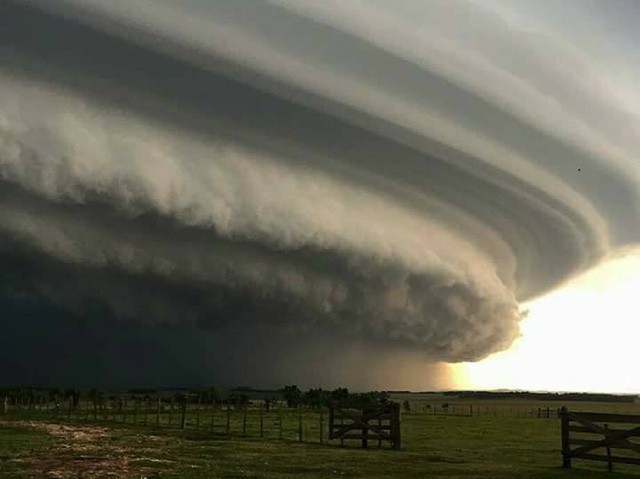
A supercell is a severe thunderstorm with a continuous rotating updraft caused by strong instability in the atmosphere and can extend up to several miles.
- Blue Fire
Location: Ijen volcano, Indonesia.
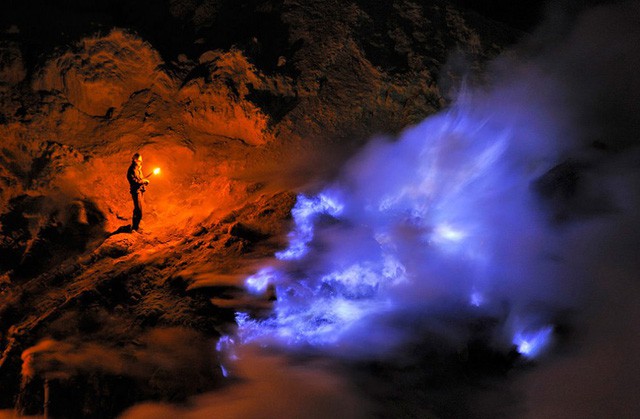
Blue fire is a phenomenon caused by burning sulfur gas emitted from cracks in the volcano’s mouth. Some gases condense into liquid and burn into a blue flame.
- Maelstrom
Location: Large bodies of water.
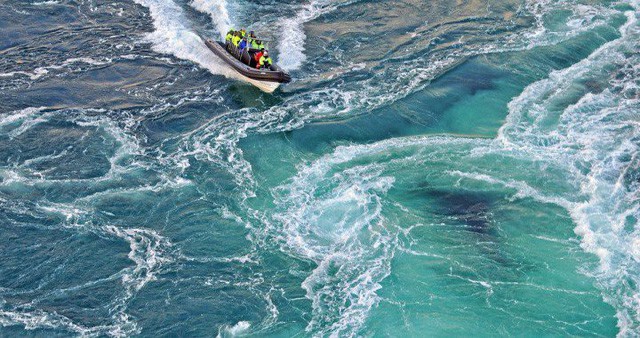
A maelstrom is a powerful water vortex that occurs in the sea and ocean. They are often caused by large tidal flows and can reach speeds of up to 40 km/h.
- Fire Rainbow
Location: Anywhere under suitable conditions.
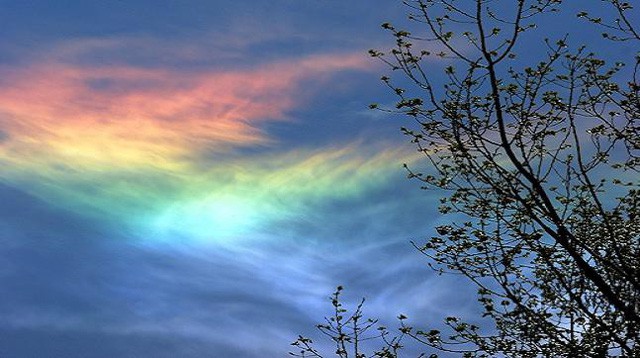
A fire rainbow is an optical phenomenon caused by the refraction of sunlight or moonlight in horizontal-oriented ice crystals suspended in clouds.
- Bioluminescent Waves
Location: Various locations, including Manasquan Beach (New Jersey, USA), Torrey Pines Beach (California, USA), Luminous Lagoon (Jamaica), Gippsland Lake (Australia), Andaman Sea (Thailand), Toyama Bay (Japan), and Zeebrugge (Belgium).
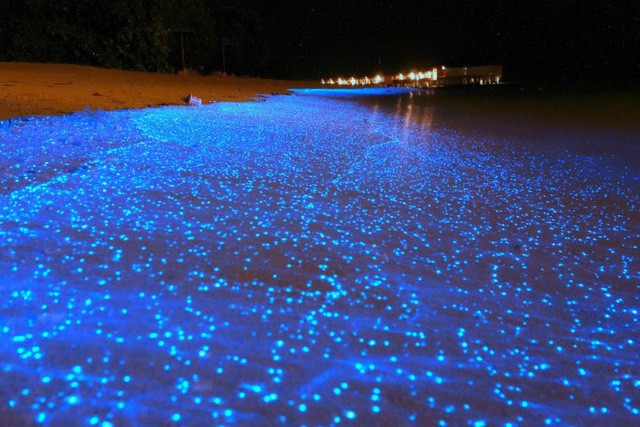
Bioluminescent waves are light created by living organisms. Bioluminescent waves glow when the organisms are disturbed, such as by waves crashing onto the shore.
